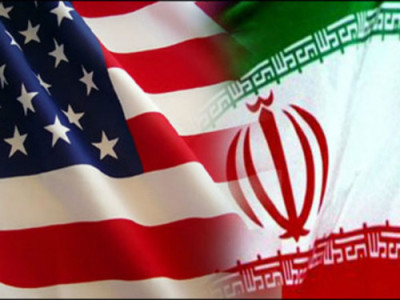Saturday was a good day for advocates of engagement and negotiation between Iran and the US.
Proponents got major space in The New York Times, both through an article by the paper’s Tehran correspondent Thomas Erdbrink, and a revealing opinion piece by Francois Nicollaud, the French Ambassador to Iran from 2001 to 2005.
Nicollaud’s article proclaims the “leading role” of President-elect Hassan Rouhani — as Iran’s chief nuclear negotiator in 2003 — “when the clandestine program run by the Revolutionary Guards to produce a nuclear weapon was halted”.
Based on conversations that I had at the time, as French ambassador to Tehran, with high Iranian officials close to the matter, I firmly believe that Rouhani was the main actor in the process….
Rouhani cannot claim credit for halting the weaponization program because officially it never existed. But the actions I believe he took in 2003 raise hopes that as president of the Islamic Republic he will be able to find and implement a negotiated solution for the continuing nuclear crisis.
The story is not entirely new — Seyed Hossein Mousavian, who worked with Rouhani on the negotiating team and is now in the US pressing for engagement, puts out a similar line in his memoirs. So, in cautious terms, does Rouhani in his autobiography.
But they are Iranians. Nicollaud is from the “West”, so his intervention — coming after Rouhani’s election in June — carries more weight.
So does the feature of Erdbrink on Rouhani, “President-Elect Stirs Optimism in the West”. Drawn from “Western diplomats”, the piece is a eulogy to Rouhani’s political skills.
However, there is a key difference in Erdbrink’s presentation: the emphasis is just as much on those within the Iranian system who might block the President-elect’s engagement with America:
In one of the most startling turnarounds in the history of the Islamic republic, he has managed to resurrect his career from that low point, drawing on connections that trace back to the earliest days of the clerical resistance to the Shah. If he is to realize his ambitions of redirecting the country to the moderate course he has laid out — stressing greater individual rights, a relaxation of tensions with the West and the repair of Iran’s flagging economy — he will have to contend with precisely those forces that defeated him and Mr. Ahmadinejad.
The message is far-from-subtle: the US and its partners — if they want a deal — should embrace the President-to-be, bolstering him against his adversaries. Erdbrink concludes:
Mr. Rouhani’s associate, who has full knowledge of the talks, disagreed. “Our mistake [when Rouhani waschief nuclear negotiator] was that we gave the Europeans too much credit, but they were on the phone with the Americans all the time,” he said. “What matters now is that with Mr. Rouhani’s election a new window of opportunity has opened up for the West. I suggest they seize the moment.”
Why the rush to engagement in The New York Times? The catalyst may have come in an article on Friday by Michael Gordon, “Iran Is Said to Want Direct Talks With U.S. on Nuclear Program“. The reporter claimed:
Prime Minister Nuri Kamal al-Maliki of Iraq told the Obama administration this month that Iran was interested in direct talks with the United States on Iran’s nuclear program, and said that Iraq was prepared to facilitate the negotiations, Western officials said Thursday.
Gordon’s piece — or at least the headline on it — was an exaggeration. While al-Maliki might have said the Iranians were considering talks, it is unlikely that Tehran is using the Iraqi Prime Minister as a channel to the American: the Iranian Foreign Ministry quickly denied “that Iran has sent a message to the US expressing its interest in engaging directly with Washington”.
Instead, the significance of the article is its timing.
Observers wrongly framed the Times story as a “new” line from Tehran: even the Supreme Leader, in a February speech — mis-read by many in the “West” — signalled his willingness for discussions with Washington. His emphasis, however, was that the US had to prove its “honesty” for those talks to occur.
Now, almost six months later, Gordon’s piece, Nicollaud’s revelations, and Erdbrink’s profile are a mirror image of that line from Ayatollah Khamenei: Iran — or at least Rouhani — has proven his honesty.
And thus “engagement” with Tehran, proclaimed by President Obama four years ago, can be renewed.

